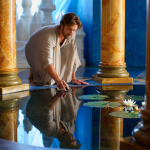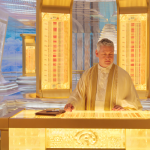
Early Extreme Retirement: The $2.1 Million Retirement Lie
Nov 11, 2024
In a world where 76% of Americans believe they need $1.1 million to retire, the median 401(k) balance at age 65 sits at a mere $144,000. This isn’t a gap – it’s an abyss. The traditional retirement model isn’t failing; it was designed to fail.
Consider this: While your financial advisor preaches the gospel of “save 15% for 40 years,” they conveniently omit that healthcare costs double every 8 years after 65. By 2050, the average American will need $2.1 million to maintain a middle-class lifestyle in retirement. Yet 94% of current retirement plans will evaporate before death.
The Early Retirement Extreme (ERE) movement isn’t just another financial strategy – it’s a declaration of war against financial servitude. When 89% of successful early retirees achieve freedom through spending optimization rather than income maximization, the path becomes clear: the solution isn’t earning more within a broken system – it’s breaking the system’s hold over your life.
This isn’t about frugality; it’s about freedom. It’s not about retirement; it’s about rebellion. While the masses chase the illusion of wealth through consumption, ERE practitioners build real wealth through strategic minimalism and intelligent capital allocation.
Three unconventional truths emerge from the data:
- Living on 30% of your income isn’t deprivation – it’s liberation
- A 70% savings rate doesn’t extend retirement timeline – it slashes it by 75%
- Financial independence isn’t about reaching a number – it’s about breaking free from numerical thinking altogether
Breaking Chains: The Physics of Financial Liberation
When a physicist retires at 33, you should pay attention. Not because it’s rare – but because it reveals a fundamental flaw in our understanding of money, time, and freedom. Jacob Lund Fisker didn’t discover a secret formula; he exposed the mathematical inevitability of financial independence through extreme efficiency.
The equation is brutally simple: Minimize consumption, maximize production, eliminate waste. This isn’t a retirement strategy – it’s an escape velocity calculation. Just as a rocket needs 11.2 km/s to break Earth’s gravitational pull, your finances need a 70% savings rate to break free from the work-consume cycle.
Three Forces of Financial Physics:
- Frugality: The conservation of energy principle applied to money. Every dollar saved accelerates freedom; every dollar wasted adds mass to the chains.
- Investment Multiplication: Money, like energy, cannot be created or destroyed – only transformed. Strategic investing converts stored capital into perpetual motion machines of passive income.
- Minimalist Momentum: The less mass you carry, the less energy required to move. By stripping life to its essential elements, you reduce the force needed to maintain your trajectory.
This isn’t theory. It’s applied physics for the financial universe. When you understand that your spending habits are merely patterns of energy transfer, and your investment portfolio is a system of potential energy storage, the path to escape becomes clear.
The Thrills and Spills of Early Retirement Extreme:
The concept of Early Retirement Extreme (ERE) offers a thrilling opportunity to break free from the traditional 9-5 treadmill and embrace financial independence. It’s a challenging path that requires discipline, commitment, and a willingness to question societal norms.
Frugality:
ERE practitioners embrace frugality as a cornerstone of their journey. It’s about making conscious decisions to save money wherever possible. This could mean cooking at home instead of dining out, opting for public transportation or biking instead of car ownership, and choosing free or low-cost entertainment. It’s a mindset shift that prioritizes needs over wants, cutting down on unnecessary expenses. This disciplined approach to spending allows individuals to maximize their savings rate and accelerate their path to financial independence.
Investing:
The money saved through frugal living is strategically invested to generate passive income. ERE advocates typically build a diversified portfolio of stocks, bonds, and real estate investments. Understanding investment principles, managing risk, and exercising patience are critical to their strategy. The goal is to create a steady stream of income to cover living expenses, freeing individuals from dependence on a traditional job. It requires learning about different asset classes, assessing risk tolerance, and making informed investment choices.
Minimalism:
ERE is not just about financial strategies; it’s a holistic lifestyle choice. Minimalism is crucial, encouraging individuals to simplify their lives and focus on what truly matters. It’s about eliminating physical clutter and unnecessary commitments, creating a more peaceful and fulfilling existence. By reducing distractions and prioritizing essential aspects of life, ERE practitioners can further reduce expenses and increase their savings. Minimalism also promotes a shift in perspective, valuing experiences and personal growth over material possessions.
Embracing a Transformative Journey
Discipline and Sacrifice:
The road to financial independence requires discipline and sacrifice, a guiding force that resists immediate gratification. You develop the willpower to say no to short-term indulgences, knowing that every dollar saved brings you closer to your dreams. It’s about passing up shopping trips and upgrades, consciously redirecting funds toward your goals. Open communication with loved ones and seeking their understanding of your choices are essential.
Scrutinizing daily expenses, you cut back on takeout and convenience purchases, accumulating significant long-term savings. You embrace delayed gratification, finding satisfaction in your progress toward financial freedom. Discipline and sacrifice empower you to take control, creating a future of financial security. It’s a journey of self-improvement, where occasional indulgences are balanced with a focused mindset.
Social Pressure:
ERE pioneers face the challenge of navigating social pressure and judgment in a world enamoured with materialism. Their frugal existence may be met with raised eyebrows and criticism from those who fail to understand the pursuit of financial independence. Accusations of depriving oneself of life’s pleasures can cause self-doubt, especially when facing disapproval. The absence of like-minded peers can make the path lonelier.
It takes resilience to withstand societal expectations and criticism, but through this discipline, the elegance of ERE unfolds.
Uncertainty:
The ERE journey is not without its uncertainties and challenges. Market volatility can impact even the most carefully crafted investment portfolios. Healthcare issues can arise unexpectedly, demanding attention and resources. Relationships may shift, and support networks can crumble, requiring adaptations. The insidious nature of lifestyle creep threatens to erode austerity, awakening the allure of indulgence.
Abundance of Early Retirement: Fortified with Wisdom
Early retirement offers a plethora of rewards that extend far beyond financial gains.
Financial Independence:
Achieving financial independence through Early Retirement Extreme (ERE) is liberating and empowering. It severs the link between self-worth and income, expanding your identity beyond professional roles. With sufficient investment returns, you gain autonomy over time and become your boss.
The significance of financial independence lies in the doors it opens. You can relocate anywhere, start businesses with a financial cushion, and volunteer extensively. It’s about pursuing careers out of passion, not just salary.
Pursuing Passions:
“If you don’t find a way to make money while you sleep, you will work until you die.” – Warren Buffett (b. 1930)
ERE empowers you to explore passions and seize opportunities without the constraints of a traditional job. Buffett’s wisdom underscores the importance of generating passive income through investments, allowing you to live life on your terms. Financial freedom allows you to travel, pick up new hobbies, and follow your entrepreneurial spirit.
Quality Time with Loved Ones:
“In the end, it’s not the years in your life that count. It’s the life in your years.” – Abraham Lincoln (1809-1865)
ERE allows you to prioritize quality time with loved ones, fostering deeper connections and understanding. Lincoln’s wisdom highlights the importance of making the most of every moment. Early retirement allows you to slow down, nurture relationships, and create lasting memories.
Reduced Stress:
“It’s not the load that breaks you, it’s the way you carry it.” – Lou Holtz (b. 1937)
Leaving the 9-5 rat race behind leads to a calmer, more balanced life. With financial independence, the daily stressors of work, deadlines, and commute melt away. Holtz’s wisdom underscores the importance of managing stress effectively. With ERE, you can say goodbye to workplace pressures and hello to tranquil beach strolls and leisurely meals.
Personal Growth:
“What lies behind us and what lies before us are tiny matters compared to what lies within us.” – Ralph Waldo Emerson (1803-1882)
The journey to ERE fosters introspection and personal growth. Emerson’s wisdom highlights the importance of self-discovery and unlocking one’s potential. By embracing frugality and investing wisely, one develops discipline and resilience.
Inspiring Early Retirement Stories
Jacob Lund Fisker:
At just 33, Jacob Lund Fisker turned his back on the daily grind, retiring with over $1 million saved from his IT job, thanks to extreme budgeting and intelligent investments in low-cost index funds. Living frugally—cooking at home, hiking, and gardening—Fisker swapped short-term splurges for lifelong freedom. Now, he enlightens others on early retirement through his popular blog and bestseller.
Pete Adeney (Mr. Money Mustache):
Known as Mr. Money Mustache, Pete Adeney retired at 30 by saving 70% of his six-figure salary as an engineering manager. His frugal habits, like biking to work and homemade meals, and wise investments, allowed rapid wealth accumulation. Now in his 40s, he shares financial wisdom and lifestyle tips on his trendy blog, inspiring thousands to rethink traditional career paths.
Joe Udo:
Retiring at 38, Joe Udo left a lucrative engineering career in Silicon Valley by saving 60% of his income. His balanced approach included enjoying hobbies like rock climbing and annual trips. Udo now runs the successful blog RetiresBy40.com, where he offers insights on investment and frugal living, proving that early retirement is within reach with the right strategy.
Carl Jensen:
Carl Jensen set a bold target to retire in 1,500 days and achieved it by age 43. With his wife, they lived below their means in Brooklyn, saving half their income and investing in stocks and real estate. Their journey is chronicled on his blog 1500 Days to Freedom, showing how minor lifestyle tweaks can lead to early financial independence.
Dr. Leif Dahleen:
Disenchanted with the medical field, anesthesiologist Dr. Leif Dahleen retired at 43 by saving intensely and investing in stock and bond index funds. His blog, Physician on FIRE, details his path to early retirement, encouraging high earners to consider exiting the workforce sooner to enjoy life’s other passions.
Tanja Hester:
Tech professional Tanja Hester reached financial independence by 38, saving over 70% of her income with her husband. They invested in a diverse set of mutual funds, living modestly to speed up their retirement timeline. Her book and blog, Work Optional, guide readers on investing and living a life aligned with personal values and passions.
Billy and Akaisha Kaderli:
Billy and Akaisha Kaderli retired in their 30s and became globe-trotting, location-independent entrepreneurs. Starting with modest means, they saved diligently, investing in low-fee index funds. Decades later, they continue to travel the world, sharing their adventures and financial strategies online, proving that a life of travel is feasible with proper planning and saving.
These extraordinary stories demonstrate that with determination, thoughtful planning, and financial prudence, early retirement is not just a dream but a reachable milestone.
Philosophical Insights:
– Socrates: “An unexamined life is not worth living.” Reflect regularly on your financial journey to ensure it aligns with your deepest values.
– Hermes Trismegistus: “As above, so below; as within, so without.” Your financial goals should mirror your internal values, creating a harmonious life path.
– Plato: “Wealth consists not in having great possessions, but in having few wants.” Embrace simplicity to achieve true financial independence.
Conclusion
The journey towards Early Retirement Extreme involves adopting a minimalist lifestyle, making strategic investments for passive income, and aligning one’s financial strategies with personal values and goals. Although this path may require significant lifestyle adjustments and overcoming social pressures, the rewards include the liberty to explore passions, enhance family relationships, and experience life beyond the confines of a 9-to-5 job.
Adhering to a disciplined budget, investing wisely, and nurturing a supportive community are crucial steps outlined in this guide, serving as a comprehensive roadmap for those aspiring to adopt the ERE lifestyle. While ERE may not suit everyone, it offers a profound transformation for those willing to challenge the status quo, leading to a more prosperous life filled with freedom and fulfilment.
As Sir John Templeton wisely stated, “It is nice to be important, but it’s more important to be nice,” reminding us that pursuing financial independence should enhance our humane qualities, not just our bank accounts. In this spirit, ancient wisdom from thinkers like Socrates, who advocated for an examined life, and Plato, who taught us that true wealth involves having few needs, resonates deeply with the principles of ERE.
.












